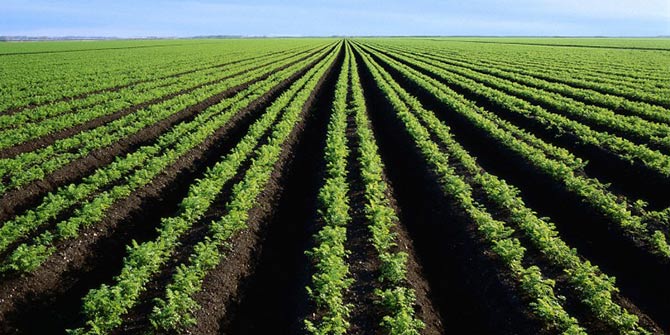In the second part of his reflections on South Sudan’s first year as an independent nation, LSE’s Matthew LeRiche says unresolved political issues between Sudan and South Sudan, rather than oil, is the reason for the continuing conflict between the two countries.
Read Part 1 – Internal Conflict within South Sudan is as much a challenge as that with their northern neighbour
The major focus in the past few months has been on the oil, which is undoubtedly a key part of the dispute, however, the confrontation between the South Sudanese and those imposing an Arab/Sudanese nationalist idea upon them, goes back to decolonisation. So there is a lot more to the confrontation than oil. For the fledgling government, the oil is important. Important because it is the means by which the Government of South Sudan (GoSS) can fund the development of an alternative national vision, that of a coherent Republic of South Sudan and military defence.

Thus when considering the role of the oil in this conflict, it is important to see decisions as being about this goal not just about the need to pay salaries or enrich elites; both undoubtedly a part but not the core thrust. With much of the terms of the CPA still outstanding, which is to say the revolutionary transformation of what constituted Sudan, conflict is likely to continue. By this, I don’t mean the details of border demarcation, as important as this is, I mean the fact that the structure of what formerly constituted all Sudan. South Sudan, even though now sovereign, is still interlinked in a complex web of politics and society that includes the old Sudan to the north.
Most poignant is the fact that key Sudan People’s Liberation Movement
(SPLM), the organisation that fought the second civil war/rebellion, members remain inside the old Sudan; namely the people of Nuba Mountains, Blue Nile and various others including some Darfuries. It would be absurd to believe or expect that ties between these peoples would cease so rapidly and callously as some have expected. It
must be remembered that all along the border areas, families are being split and former comrade-in-arms are being expected to abandon their former brethren; this, of course, is absurd. Though not official, the connections remain, this is to say that the issues that faced all Sudan remain even for a sovereign South Sudan, until the political
situation in both Sudans is resolved.
Therefore arrangements on oil sharing and borders can only feasibly be resolved until the political situation is reconciled and for many that now means the removal of the National Congress Party (NCP) regime, or at least the removal of its head Omar Bashir. Certainly, as in other countries in the past year, it is likely that the simple decapitation of a regime will not solve the major problems. There will continue to be major confrontations between Juba and Khartoum and all along the disputed border until wider change occurs. Moreover, this relationship and confrontation will be the defining feature of the coming months and years of the young country and thus definitive in the development of its national identity and specific policy and conduct of governance.
The importance of the inextricable links between South Sudanese and Sudanese peoples extends to the negotiations of oil sharing in particular. Unless the various key opposition forces in South Kordofan and Blue Nile, along with Darfur are reconciled with the government, any deal to transport oil from South Sudan to the Port of Sudan remains hostage to the deeper conflict between the vision of a New Sudan and the Old Sudan. Reports in the past week indicate that Chinese oil companies and government have facilitated a deal between Juba and Khartoum on prices to get oil flowing again, at 15USD per barrel inclusive of all costs to move the oil from well to tanker ship. However, it remains, that unless the conflict in Nuba Mountains, Abyei and Blue Nile are resolved the viability of any functioning oil production is in question as the opposition groups control enough space and can strike in a way that could easily disable the oil production.
Thus the negotiation of a deal between the National Congress Party (NCP) and the SPLM, Khartoum and Juba respectively is critical. The weekend before independence anniversary celebrations in South Sudan, talks on these issues in Addis Ababa stalled with little agreement on border issues among others. A less than rousing reception for the main mediator, Thabo Mbeki, the head of the African Union High Implementation Panel at South Sudan’s Independence Day celebrations clearly revealed the lack of public faith in the talks currently underway. More importantly it revealed the lack of faith in the African Union as an effective arbiter of the major confrontation between South Sudan and Sudan. Rather than working to do a deal with the NCP, the Sudan Revolutionary Forces are expressing further frustration and are a part of the coalescing of opposition forces against Bashir. It may be the case, as protests grow in Khartoum and other major centres against the Bashir and the NCP, that the resolution may come once Bashir has departed.
Unlike in other states that saw the Arab Spring bring revolution, Bashir and his apparatus are still firmly in control, although they are facing the strongest challenge since the latter years of the war from 2002 – 2005.
Part 3 – Diversity must become a pillar of national identity if South Sudan is to succeed as a nation – Coming soon





